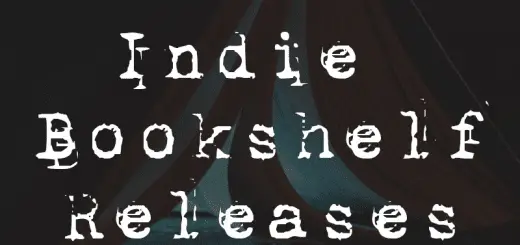The Horror Tree Presents…An Interview with Michael Kamp
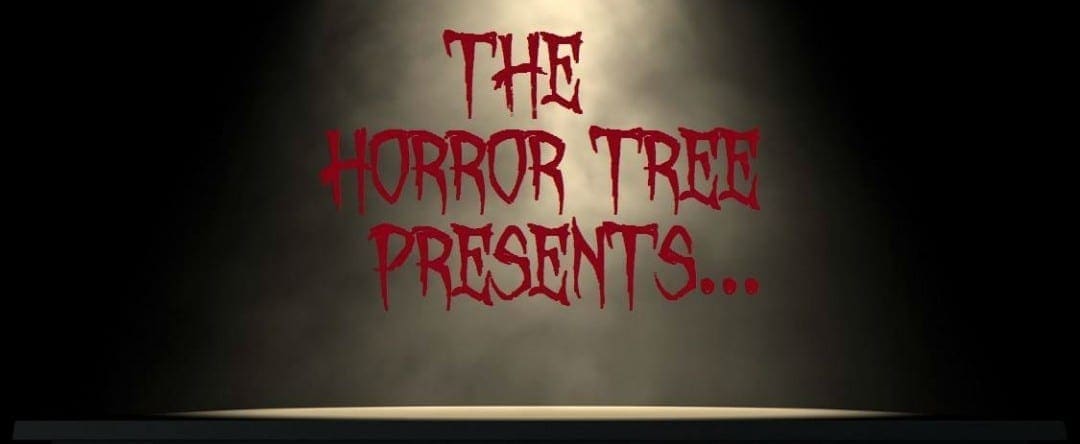
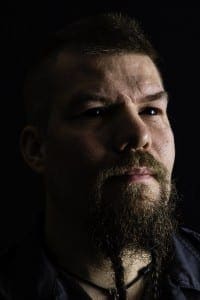 Ruschelle: Was there an event, movie book or supernatural experience that happened in your life when you knew you wanted to write in the horror genre?
Ruschelle: Was there an event, movie book or supernatural experience that happened in your life when you knew you wanted to write in the horror genre?
Michael: Not really. Ever since I was a child my imagination has been fascinated with the morbid, so when I began telling stories and exploring that path, it was usually horror. I did have the experience most wanner-be writers have – picking up a book at the library and afterwards thinking: “I can do this better. Heck, I am doing it better.”
Ruschelle: You’ve mentioned in previous discussions that you feel that not all of your books would translate well from Danish to English. Is it more than just the language barrier?
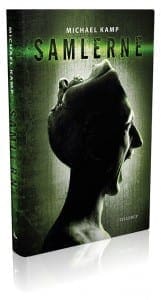 Michael: Yes. Most of my stories are part horror, part social commentary and since Danish and US societies are pretty different both in function and mindset, some of them don’t translate very well. For instance, my award-winner Samlerne (The Collectors) deal with the newly emerging role for fathers and men, where the main character feels adrift and has a hard time connecting with his family. He has to try and fix a dysfunctional marriage and be a positive role model for his children, who are slowly becoming strangers to him.
Michael: Yes. Most of my stories are part horror, part social commentary and since Danish and US societies are pretty different both in function and mindset, some of them don’t translate very well. For instance, my award-winner Samlerne (The Collectors) deal with the newly emerging role for fathers and men, where the main character feels adrift and has a hard time connecting with his family. He has to try and fix a dysfunctional marriage and be a positive role model for his children, who are slowly becoming strangers to him.
And all that is before I even introduce the outside threat.
While a lot of things would be similar (I assume) in the US, I’m just not familiar enough with the nuances of US family life outside sitcoms. So I don’t know how well it would reflect reality in a US setting.
Ruschelle: Is the foreign market tough to break into? Is it just the English market or is it across all foreign speaking nations?
Michael: It is insanely hard. I’ve only tried the US market so far – I simply haven’t had the time to look elsewhere – but the US market is crazy. I’m not only back to square one as a totally unknown – that’s to be expected – but the way I made a name for myself in Denmark doesn’t really transfer to an overseas market. I can’t network at Cons, I can’t attend readings and get on panels because I’m on another continent. I mean, sure I could go there, but I’m not made out of money, so I haven’t made that investment so far.
The main obstacle to getting anywhere in the English market is to get people – any people – to read your stuff. It doesn’t matter how talented you are – if there are thousands of other writers giving their work away for free and promoting their own titles next to you, you simply drown.
My first title in the US market, Clowns, did get really good reviews and very positive feedback – but not enough to trigger the famous Amazon Algorithm to make them promote the title.
I had to sit down and make a plan for the next several years on how to tackle this challenge. We’ll see if it makes any difference 🙂
I did write a fairly long article on the process of getting a title on Amazon and what I learned along the way. Maybe it can help someone out there?
Ruschelle: The American tradition of Halloween has made its way to Denmark. I KNOW you are a Halloween lover. What are you and your fellow Danes enjoying from this horrific holiday?
Michael: The main attraction is that adults are allowed to join the fun. I love decorating the house with all things spooky and think of new ways to outdo last years Halloween. Our own version is called Fastelavn and takes place in February, but that is for kids only. Adults are considered weird if they want to be part of it.
Since Halloween is new here, we get to define it ourselves and a lot of us has jumped on the opportunity.
And I’m passing it along to my children. Only Christmas can outcompete Halloween in our house. And I don’t see it challenging Christmas unless we begin giving Halloween gifts. 🙂
Ruschelle: Halloween gifts! That would be awesome. Giving each other skulls and vampire teeth rings and other macabre stuff. Sign me up when it happens. You have made a name for yourself in the Danish market. You have won the Best Danish Horror of the year in 2015 which you mention is the equivalent of the Bram Stoker Award here in the US to back that up. Kudos! What would be next on your goals to slash and conquer on your bucket list?
Michael: Thank you 🙂 Well, I am very ambitious and there’s not a lot of places to go further in the Danish market. Not as a horror writer. It is one of the reasons I try to go abroad.
My ultimate ambition is to one day win the coveted Bram Stoker Award myself.
A bit more realistic, but still very ambitious, is to get on the shortlist within the next five years.
That is also my plan for getting attention in the US market. Just go win an award, haha. 🙂
Ruschelle: I read somewhere where you said that the Danish swear more than in America. Explain please or should I say, ‘explain dammit?’ The way I swear, I must be part Danish….
Michael: I’m not sure why, but Danes have a totally different relationship to swearing. I think it’s because we are a more direct society. Danes are often considered rude and foreigners can have a hard time adjusting in the workplace. We talk to each other as a close family can do because we consider each other equals.
It can be pretty off-putting and Danes abroad have to make some serious adjustments to not mouth off to the boss.
For some reason, we use a lot of English swearwords in our daily lives – probably because they don’t sound ugly to us. It’s common to see parents drop the F-bomb in front of their kids and the kids themselves use it freely.
Calling someone a “Kælling” (our version of bitch) is frowned upon – that is just rude and considered uneducated, but calling someone a motherfucker – meh, that’s just colorful language.
I need to pay a lot of attention to swearing in my stories, because the US market reacts much, much stronger to it than I’m used to.
Ruschelle: You have a pet troll! Tell me about him or her? How the hell did you catch one?
Michael: Trolls are a bit tricky. They keep to dank and dark places but with patience and plenty of treats they can be lured into the family.
They will only eat live prey, but they are not particularly bright, so if you jiggle a piece of meat just right, they will accept it. It’s nice. Keeps mouse away.
Ruschelle: If one will do housework, ship it over to me. You established the Danish Horror Society in 2011 and your membership has grown from a few bloody trickles a generously gory splatter. You had one of your most recent meeting at a castle! How gnarly is that? Tell us a bit of what the society does for each other as well as the genre of horror?
Michael: The Danish Horror Society was created to bring attention to the horror genre as fiction for adults. In Denmark, there’s a tendency to place all of the fantastic genres in the children’s section of the library.
It is changing – in part because of the society – but back in the day one of my colleagues found his new title prominently displayed at the “New Titles” table in the children’s section. But the title in question was borderline splatterpunk and featured several mutilations.
They hadn’t really read any of it – they just assumed it belonged there.
It’s a bit ironic that I’m a co-founder and yet today it’s me writing to the children and YA segments.
We use the society to network and help each other out. If a library or a school needs one or several horror writers for an event, they tend to call the society.
It’s not just for writers, though. Everyone who deals with horror in some form are welcome. Journalists, bloggers, filmmakers.
Crime fiction reigns supreme in Denmark, and the Danish Horror Society has joined forces with the biggest crime fiction con around here, Krimimessen, so we get to participate with our horror alongside hundreds of our colleagues in crime fiction.
The castle was a nice touch, but it’s really one of our members who happen to live there. Yeah – she lives in a castle. (Add to bucket list.)
Ruschelle: Your recent 2017 offering, Clowns or Klovn (in Danish) was written for young adults. Do you find it easier or more difficult to write horror for youthful readers?
Michael: It’s mostly easier. I never hold back, so I can tell almost the same stories I would tell adults, I just have to make a few adjustments. The teenage years are filled with angst and strange new things, so horror stories are a perfect fit.
And children are much easier to set up for scary stories since they are fairly helpless on their own and that makes creating a threat much more fun. I tend to think of my own childhood and the fears I had and just go: “But what if it was real?”
Children and YA are a ton of fun.
Ruschelle: Are there differences in YA for Danish compared to English? Can you get away with more blood and guts?
Michael: There’s a huge difference and that took me by surprise. Clowns are considered a book for children in Denmark, although it does move into a grey area with the amount of gore. To be truthful it probably too gory for children who do not love the macabre.
But when I began sending out review copies in English, I got several replies that I must have made a mistake. This was no children’s book.
It turned out that no-one mentioned kids being eaten alive on-scene, but the amount of swearing put it in YA territory and sometimes straddling the border even with that.
My whole compass for judging my target audience was turned upside down. I had not even considered the swearing might be a problem. At all.
In Denmark, we try to shield children from violence and pornography, but swearing and nudity is perfectly fine. Several Danish movies for children, particularly older ones, has full frontal nudity and everyone swears like sailors.
It’s changing with globalization, but it’s still a real challenge I need to wrap my head around.
Ruschelle: How many of your novels and short stories that you’ve written do you have proudly displayed on your bookshelf?
Michael: All of them. 🙂
I’m terrible at being humble (which is bad for a Dane). I’d prefer both my books and awards to be prominently displayed in the living room, but wife says no. They are exiled to my office space alongside my horror posters and other gory knick-knacks.
Ruschelle: Of all the novels and stories you have written, which one was the easiest to pen? And on the flip side, which one was more of a struggle? Be it internally or physically?
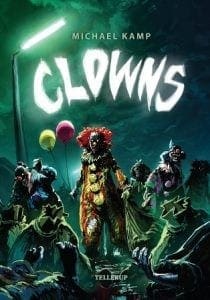 Michael: The easiest by far was Clowns. It took me a month because it mostly wrote itself. The premise was so simple. It was the height of the Scary Clown epidemic and we had tons of them in Denmark.
Michael: The easiest by far was Clowns. It took me a month because it mostly wrote itself. The premise was so simple. It was the height of the Scary Clown epidemic and we had tons of them in Denmark.
So one day I wondered: “What if those clowns were not guys in suits? What if they were real?”
I pitched it to my publisher and they loved it.
It was actually named Best Horror Title for Children 2017 by a group of libraries, which makes me very proud.
The hardest was Samlerne (The Collectors). That was so personal dealing with all those fears of losing one’s family and how to navigate as a man in modern times and it made the transition into the horror difficult. I struggled for months getting through the second act before it picked up speed in the third.
It was worth it, though, since it went on to win the national award.
It was by far my most ambitious project and it took so much more effort than I had anticipated.
Ruschelle: What is it you love about Danish folklore?
Michael: It’s morbid and multilayered. Danish winters are long and dark and the old days were pretty violent. Stories of what lurks in the night are very popular and it seems everywhere you go, there’s something waiting to kill you (or snatch you away).
Nøkken (a water spirit of sorts) lurks in streams and rivers waiting to lure children to their doom. Elves in the forest can be cruel or kind. They are inhuman, so you can’t tell. Gravsoen (The Grave Sow) is a gigantic, black sow infused by evil that stalks cemeteries and other dark places at night.
Trolls and curses and undead critters rising from the grave.
So much material to choose from.
And it’s particularly interesting that we had the change from paganism to Christianity only a thousand years ago. Much of the old ways made their way into folklore and you can see how that shaped a silent conflict for centuries when symbols and names changed the meaning and became infused with the either the new or the old.
Fascinating.
I’m actually researching right now as I’m writing a Christmas themed story. I had to learn if there were any grim traditions concerning Christmas, and yep – they delivered.
Turns out families would light candles and put them in the windows to guide the dead family members home, to join them at Christmas. In some areas, they even made room in the bed for the dead. I need to look into this in greater detail.
Ruschelle: If YOU could go back and create Danish folklore, what creatures would the old books be filled with?
Michael: As a huge fan of Lovecraftian horror, I bemoan the lack of formless terrors. I would definitely add more tentacles and creatures with an uneven number of eyes.
Ruschelle: I watched a video interview where you mentioned attending seminary school. Very interesting for a horror buff! How has that shaped the way you interpret horror?
Michael: I’m not sure it translated properly. I studied to become a teacher and taught for 8 years. That certainly showed me a plethora of teenage angst to exploit in future stories. It gave me a lot of insight into the teens of today and the world they try to navigate.
Ruschelle: Ehhh….I thought you were going to be a priest. I guess not. Lol. Damn translations!!! But I’m going to with my next question anyway because…why the hell not? It’s still a valid question. So…Has that experience (now recognized as becoming a TEACHER )played out in any of your stories?
Michael: Several of my stories are centered around school and kids going to school. School are scary places, even before I add the supernatural ingredients. I really cared for my students, so it gave me a way to write nuanced characters instead of just “the bully” and “the jock” etc.
One of my novelettes, Decay, is told from a teachers perspective as he watches his students turn to zombies one by one, and yet no-one else seems to care.
That one should hit the English market within some months.
Ruschelle: Okay, which movie badass is the most hardcore? For example; Michael Meyers, Jason Voorhees, Pinhead or Freddy Kruger? Please don’t tell me Chucky….
Michael: That has to be a tossup between Freddy Krüger and Pinhead (yeah, I know his name is Hellpriest, but Pinhead sticks.)
Both are iconic and represents an existential threat. You can outrun Jason and Meyers (until he teleports), but you can’t escape your dreams. Or Hell.
I like my horror with the imagination cranked up to 11 and both dream sequences and punishments in Hell satisfy my joy of seeing new and terrible things.
As a character I really like Jason, but I was never a fan of the movies. The slasher genre is one of my least favorite, but Jason himself seems to embody horror in a pop-cultural way.
Ruschelle: If you could go anywhere in the world to research and immerse yourself in a culture or a lifestyle for an upcoming book, where would it be?
Michael: I’d go to Japan. It’s the most fascinating culture I know of and they have a ton of scary traditions. I would like to spend some serious time connecting with that culture, both the traditional and all the crazy stuff we see on TV.
I think it could be a really interesting backdrop for a novel if I got it right.
Ruschelle: Is there a horror topic that you would consider too taboo and NOT be able to craft a story behind it?
Michael: Yeah. I won’t use the death of an infant as a shock effect. Becoming an adult and particular a father I have seen the devastation such things cause in the lives of the parents. I just don’t think the gains of a story could be worth the pain it might inflict on a reader to be worth it.
I want to scare my readers.
I want to give them nightmares.
But I don’t want to hurt them. I don’t want to cause real-world pain with made up stories.
That’s just not worth it.
I kill plenty of children in my stories and several of the stories are centered around grief and the loss of loved ones, so I’m not staying away from the subject. It’s just not worth a casual reference.
Plus it’s lazy writing.
Ruschelle: What offerings do your newfound readers have to look forward to?
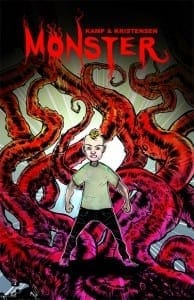 Michael: I had planned to put out two titles at the start of the year, but now it’s already April, so … Decay is translated and on its way and one of my YA titles have been planned, but I have not actually translated the bulk of the text yet.
Michael: I had planned to put out two titles at the start of the year, but now it’s already April, so … Decay is translated and on its way and one of my YA titles have been planned, but I have not actually translated the bulk of the text yet.
I usually translate the text myself, then hire an editor to weed out weird Danish syntax and making sure everything is on par with a native English speaker.
The YA novel is called Moln in Danish, but that is a terrible name, so I need a new one for the English market.
I tend to struggle with titles.
But right here and now I have an online comic out which can be read for free. “Monster” deals with children growing up in a family with alcohol issues and how that can manifest itself as an actual monster.
Ruschelle: Thank you so much for chatting with me!
Michael: Likewise. That was some really interesting questions.
You can follow me on-line to keep up with this northern writer 🙂
Facebook: https://www.facebook.com/michaelkampforfatterside/
Homepage: http://www.fromthefrozennorth.com



